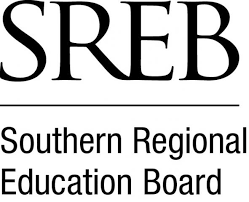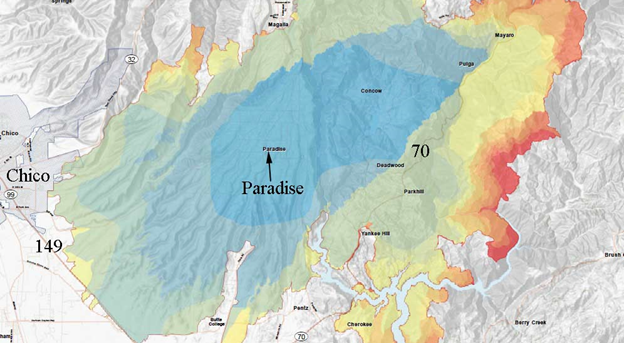Academy helps Alabama leaders turn schools into early learning hubs – By Linda Jacobson, Education Dive
Alabama school administrators who participated in the National Association of Elementary School Principals’ Pre-K-3 Leadership Academy pilot say the training — which includes face-to-face sessions, online learning and a capstone project — improved their ability to serve students with the greatest needs, according to an evaluation conducted by the Southern Regional Education Board.
“Academy completers said that it made them more aware of the needs of students; more aware of research and literature that could help their teachers; it gave them more instructional strategies to share with their teachers,” wrote Jon Schmidt-Davis, director of SREB’s Learning-Centered Leadership Program.
After participating, the principals also reported providing more joint professional development for teachers from early childhood and the early grades, and said they were doing more to “make schools a hub for Pre-K-3 learning for families and communities.” They reported the least growth in providing personalized learning environments in those grades, and Schmidt-Davis recommends the academy add an on-site coaching visit to the program.
As schools increase efforts to meet 3rd grade reading targets, and build on the benefits of more children arriving to school with preschool experience, a variety of organizations providing professional development have responded with opportunities focusing specifically on increasing principals’ understanding of recommended early-childhood practices.

Children return to school 3 weeks after California wildfire – By Associated Press NBC News
Eight-year-old Bella Maloney woke up next to her little brother in a queen-size bed at a Best Western hotel and for breakfast ate a bagel and cream cheese that her mother brought up from the lobby.
And then she was off to school for the first time in nearly a month.
For Bella, brother Vance and thousands of other youngsters in Northern California who lost their homes or their classrooms in last month's deadly wildfire, life crept a little closer to normal Monday when school finally resumed in most of Butte County.
"They're ready to get back," Bella's mother, Erica Hail, said of her children. "I think they're sick of Mom and Dad." At school, "they get to have time alone in their own space and their own grade and they get to just be by themselves."
Schools in the county had been closed since Nov. 8, when the blaze swept through the town of Paradise and surrounding areas, destroying nearly 14,000 homes and killing at least 88 people in the nation's deadliest wildfire in a century. About two dozen people remain unaccounted for, down from a staggering high of 1,300 a few weeks ago.

Computer coding program is expanding to Indiana's incarcerated kids – By Arika Herron, The Indianapolis Star
Coding is a popular high school class — seen as a direct route to high-paying jobs in the booming tech sector — and starting next year it's going to be offered to more young Hoosiers: incarcerated kids at Indiana’s Pendleton Juvenile Correctional Facility.
Indiana is extending The Last Mile, a California-based technology and business skills-training program for inmates, to the Pendleton facility with a grant from Google.org. Gov. Eric Holcomb announced the grant in Pendleton on Tuesday in front of a crowd of state officials, philanthropists, Google employees and Pendleton youths.
“I am beyond thrilled to be growing this life-changing program,” Holcomb said. “Now with the help of Google.org, even more offenders will leave prison able to return to the workforce with the valuable skills world class companies like Google are looking for. The Last Mile program really starts the first mile of the rest of their new life.”
The program first came to the state last year at the Indiana Women’s Prison. Also on Tuesday, the first class of graduates earned their certificates for completing the first phase of the program. Holcomb told the group of women that he was proud of their dedication to self-improvement and was excited to see what their futures hold.
"Education is the great equalizer," Holcomb said.

Students need to understand government – By Esther Cepeda, The Register Mail
It hardly seems possible, but it’s happening: Students have gotten so fed up that they’ve resorted to legal action to get the education they need to become productive citizens.
As The Associated Press reported last week, a group of public school students and their parents filed a class-action lawsuit against Rhode Island’s governor and the state’s education officials, claiming that the state fails to prepare young people to fully participate in civic life.
The students are asking the federal courts to confirm the constitutional rights of all public-school students to a civics education that adequately prepares them to vote, exercise free speech, petition the government, serve on a jury, write a letter to a newspaper’s editor, participate in a mock trial or otherwise actively engage in their communities.
Musah Mohammed Sesay, a high school senior and co-plaintiff in the suit, told the AP that he hasn’t been exposed to the basics of how local government works or how decision-makers are held accountable by the citizens they govern.
It’s a sad scene. Rhode Island doesn’t have a civics-education requirement, doesn’t require teachers to be trained in civics, and doesn’t test students on their knowledge of civics and American history, according to Michael Rebell, a lead counsel in the case and a professor of law and educational practice at Teachers College, Columbia University in New York, who was interviewed by the Providence Journal.
Rebell said that the skill set is so low on the state’s educational radar that the position of social-science coordinator within the Rhode Island Department of Education has been vacant for six months.












